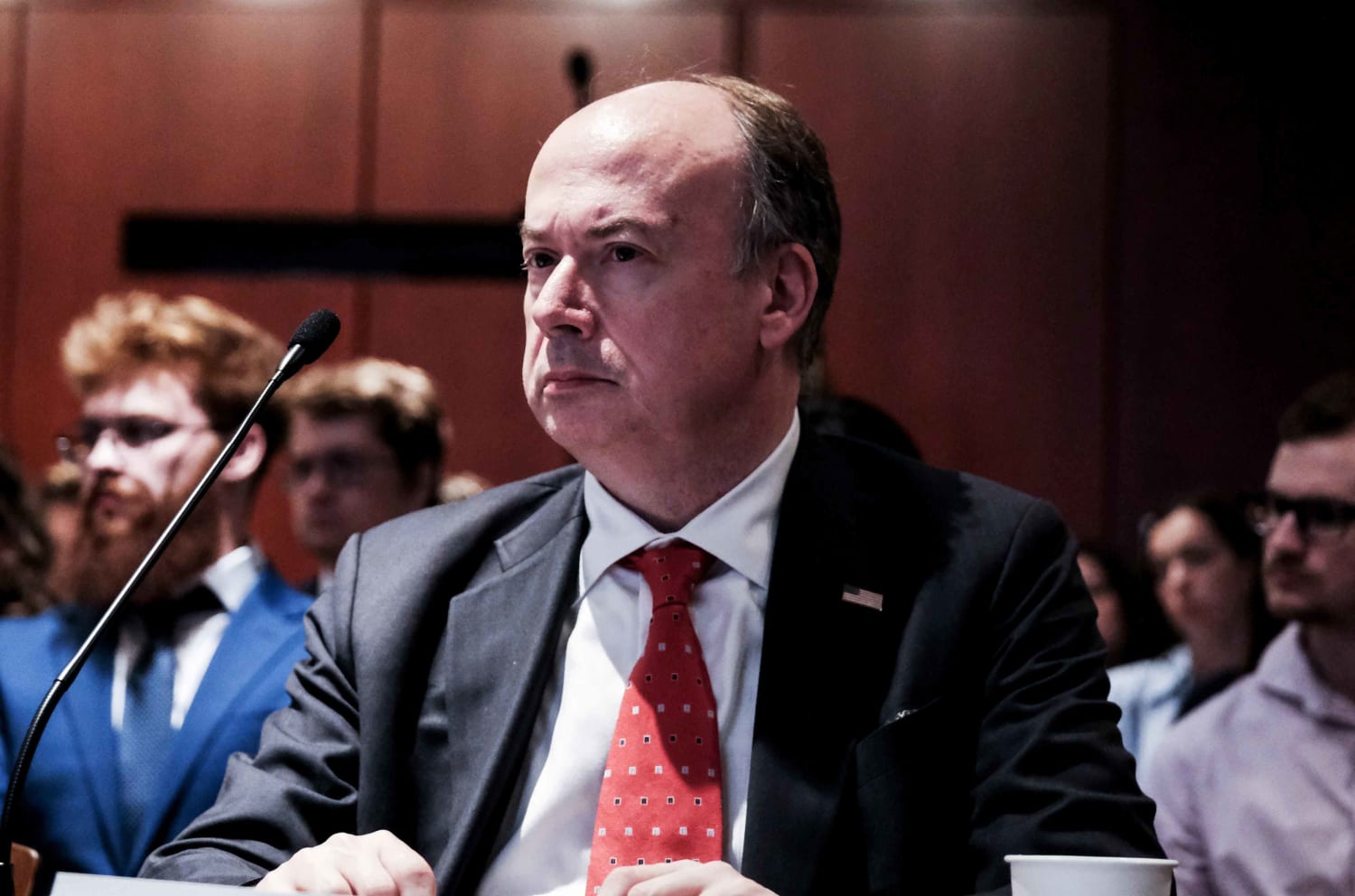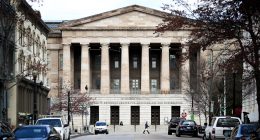Lawyers for former Justice Department official Jeffrey Clark, a co-defendant in the Georgia election interference case, will appear in a federal courthouse in Atlanta on Monday to argue for moving his case to federal court.
Clark waived his right to appear at the Monday hearing. He pleaded not guilty to racketeering charges this month alongside former White House chief of staff Mark Meadows and former Trump attorney John Eastman. Clark is among the 19 defendants in the sprawling case brought by Fulton County District Attorney Fani Willis, who accused them of participating in schemes designed to unlawfully subvert Joe Biden’s 2020 election victory in Georgia and name Donald Trump the winner.
Clark and his attorneys are trying to move the case from state to federal court. U.S. District Judge Steve Jones, who will preside over Monday’s hearing, previously denied Meadows’ bid to move the Georgia election interference charges against him to federal court. Jones ruled that Meadows’ alleged involvement in efforts to pressure state leaders to overturn the 2020 election results was not part of his official duties as a government official.
Clark worked during the Trump administration as assistant attorney general in the environment and natural resources division. In the final few months of Trump’s time in office, Clark also served as acting assistant attorney general in the civil division.
Clark helped boost then-President Donald Trump’s conspiracy theories about widespread election fraud in the 2020 election. He was charged with violating Georgia’s Racketeer Influenced and Corrupt Organizations Act and with a criminal attempt to commit false statements and writings. Trump, who also faces racketeering and other charges in the case, also has pleaded not guilty.
In the indictment, prosecutors said Clark showed great interest in sending a five-page official Justice Department letter he drafted in late December 2020 to Georgia Gov. Brian Kemp and state legislative leadership that falsely claimed investigators had “identified significant concerns that may have impacted the outcome of the election in multiple States.”
Prosecutors said Clark first emailed acting Attorney General Jeffrey Rosen and acting Deputy Attorney General Richard Donoghue on Dec. 28, 2020, asking for permission to notify the Georgia officials of that claim. Later that week, he met with the two men in person to repeat that request.
The letter was never sent, but prosecutors allege Clark’s attempt to disseminate those false statements is a violation of the state’s RICO Act.
In a filing last week, Clark’s lawyers argued that he should be entitled to move his Fulton County case to federal court because the actions he is charged with fall within the scope of his duties as an assistant attorney general and that he could invoke the supremacy clause if his case is ultimately removed.
“The State assumes that it is for the State to determine the scope of the responsibilities of an Assistant Attorney General of the United States. It is not. Constitutionally, that is none of the State’s business,” they wrote.
Clark’s lawyers also described a previously reported January 2021 Oval Office meeting of Clark, Trump, Donoghue, Rosen and White House lawyers. Clark sought approval to send the letter to Georgia officials, but everyone else was against it, they wrote.
“All six other than Mr. Clark argued against the letter,” the lawyers wrote. “The President was initially in favor of sending the letter and having Mr. Clark take the helm of the Justice Department. After several hours, however, the President decided not to send the letter and left Justice Department leadership as it was on January 2, 2021. That was the end of the matter. It was a privileged discussion that never should have become public and it was not leaked by Mr. Clark to the press or Congress.”
Clark’s lawyers argued that the fact that the then-president sought advice from Clark proves that his actions fell within the scope of his duties as assistant attorney general.
“The significant point about this meeting for removal purposes is that the President discussed the letter and election topics directly with Mr. Clark, and directly sought his opinions and advice, along with that of all others present. The President has the unqualified and illimitable right to seek and obtain such advice from his senior legal advisors,” they wrote. “This act by the President conclusively ratified that Mr. Clark’s responsibilities included the election-related issues discussed in the draft letter, and that all of his charged conduct was under color of law.”
Clark’s lawyers also said their client has immunity under the supremacy clause, which “therefore bars enforcement of any state’s criminal law against Mr. Clark based on the content of his confidential internal deliberations at the Department of Justice or with the President,” they wrote.
Source: | This article originally belongs to Nbcnews.com









